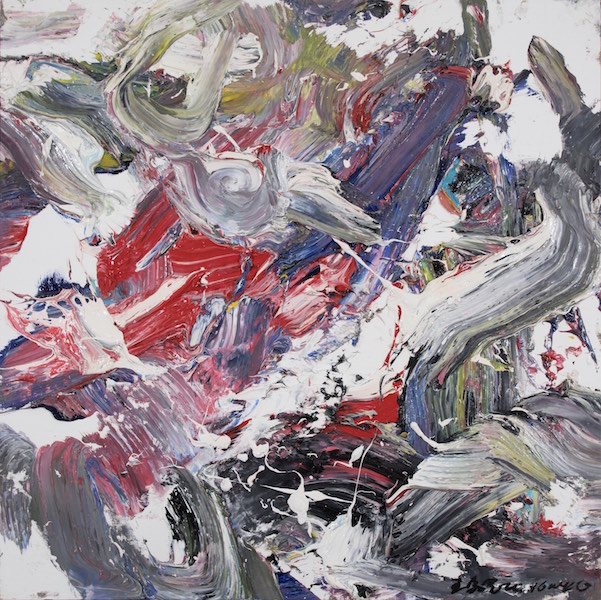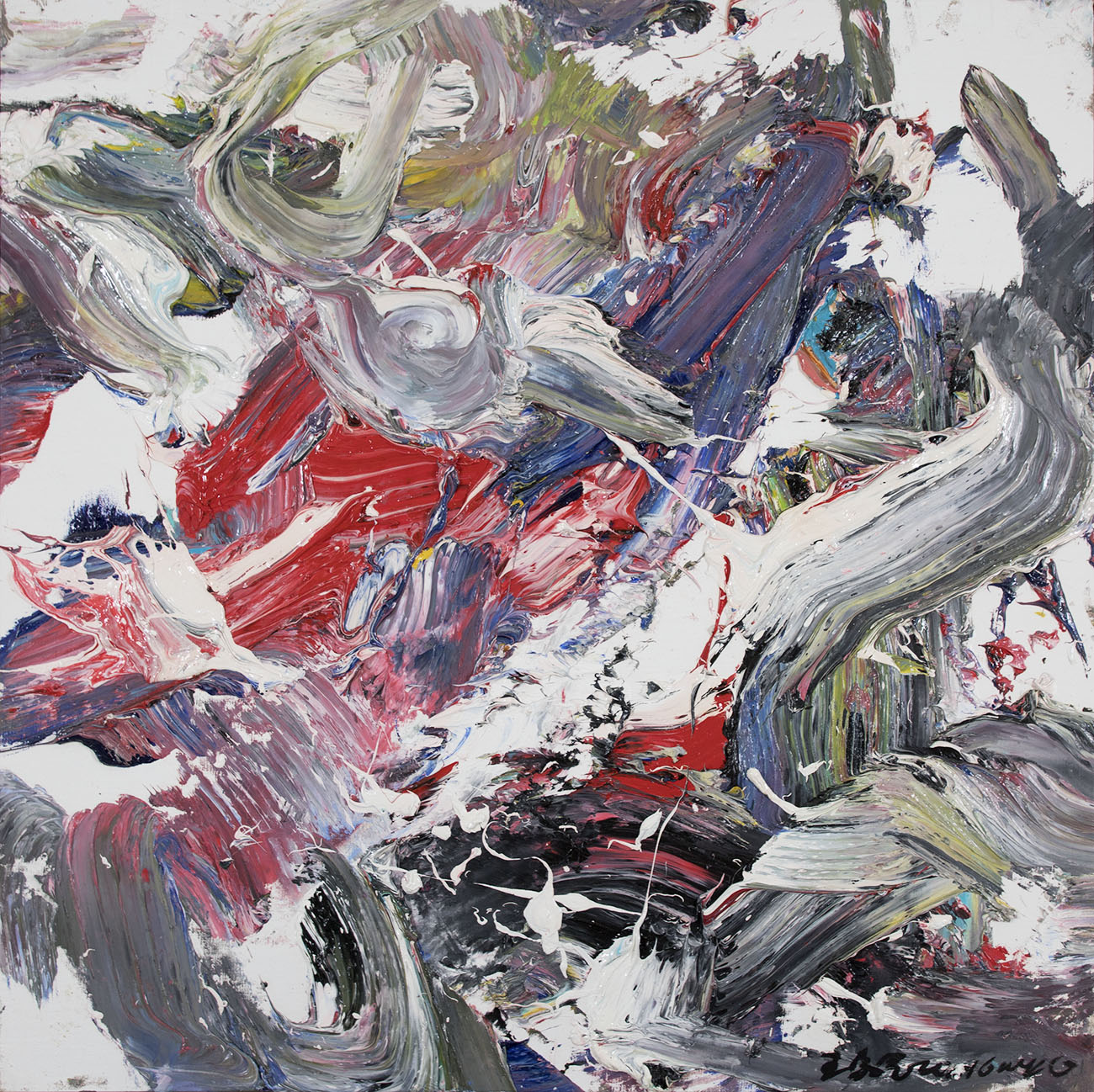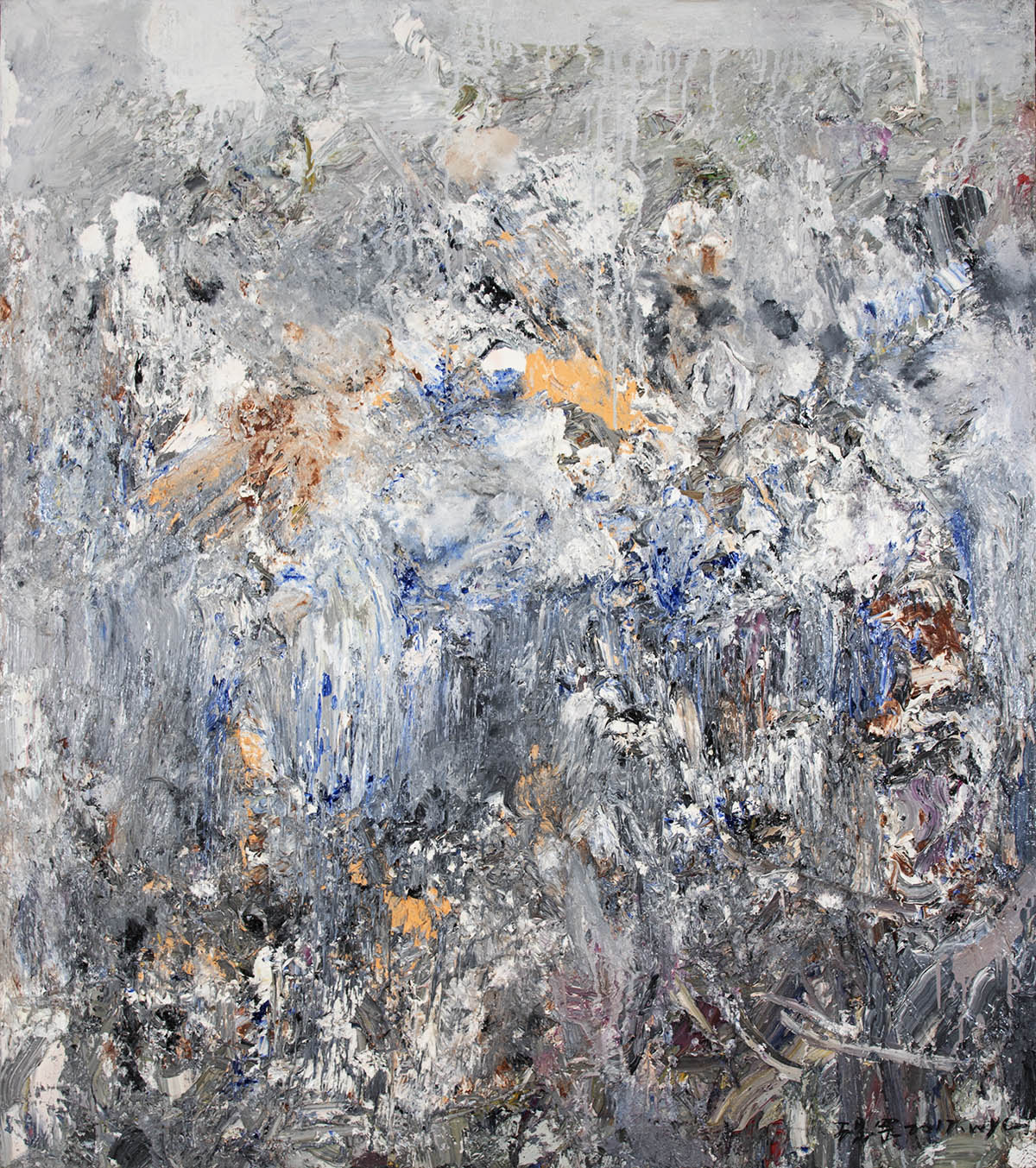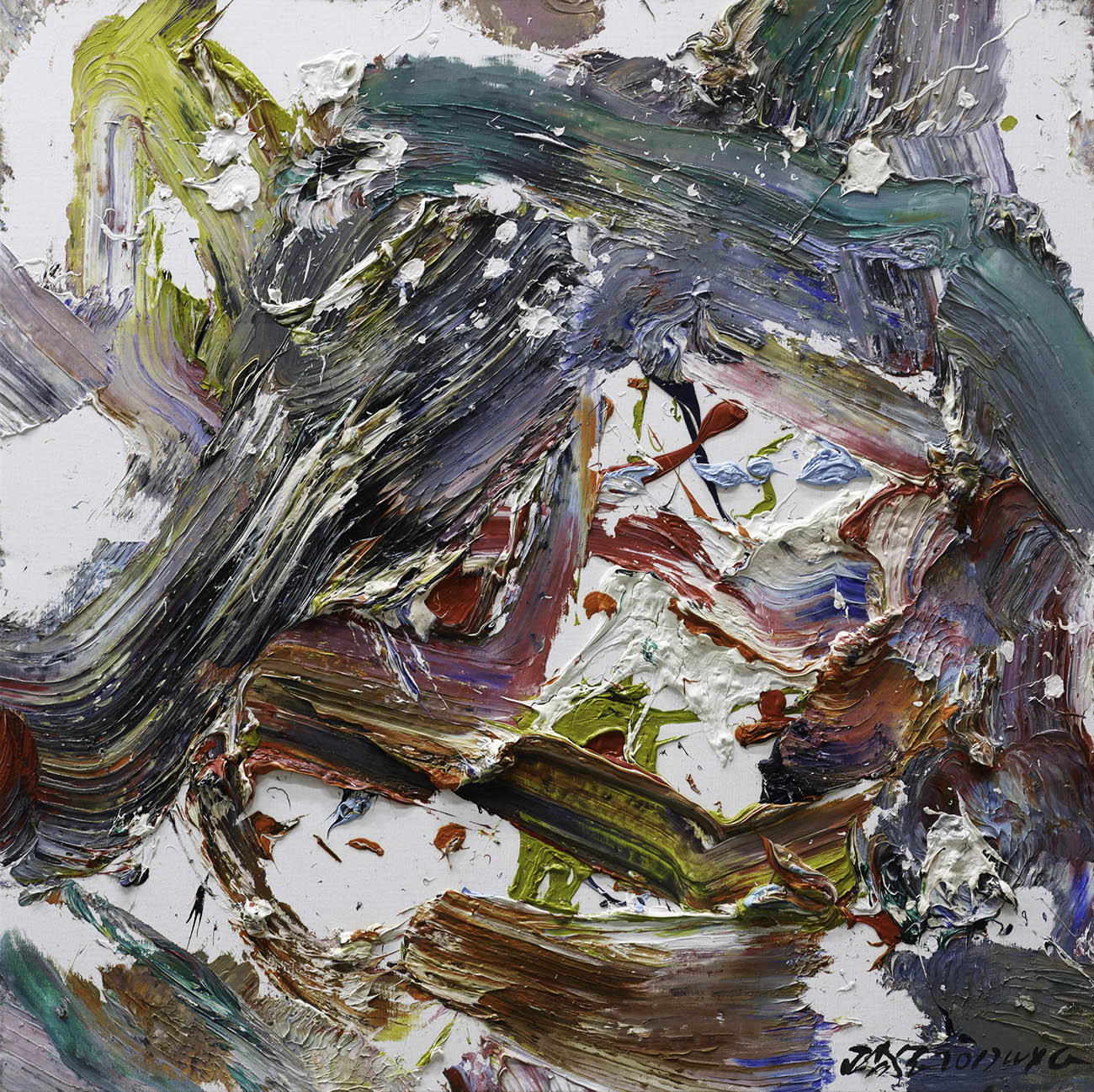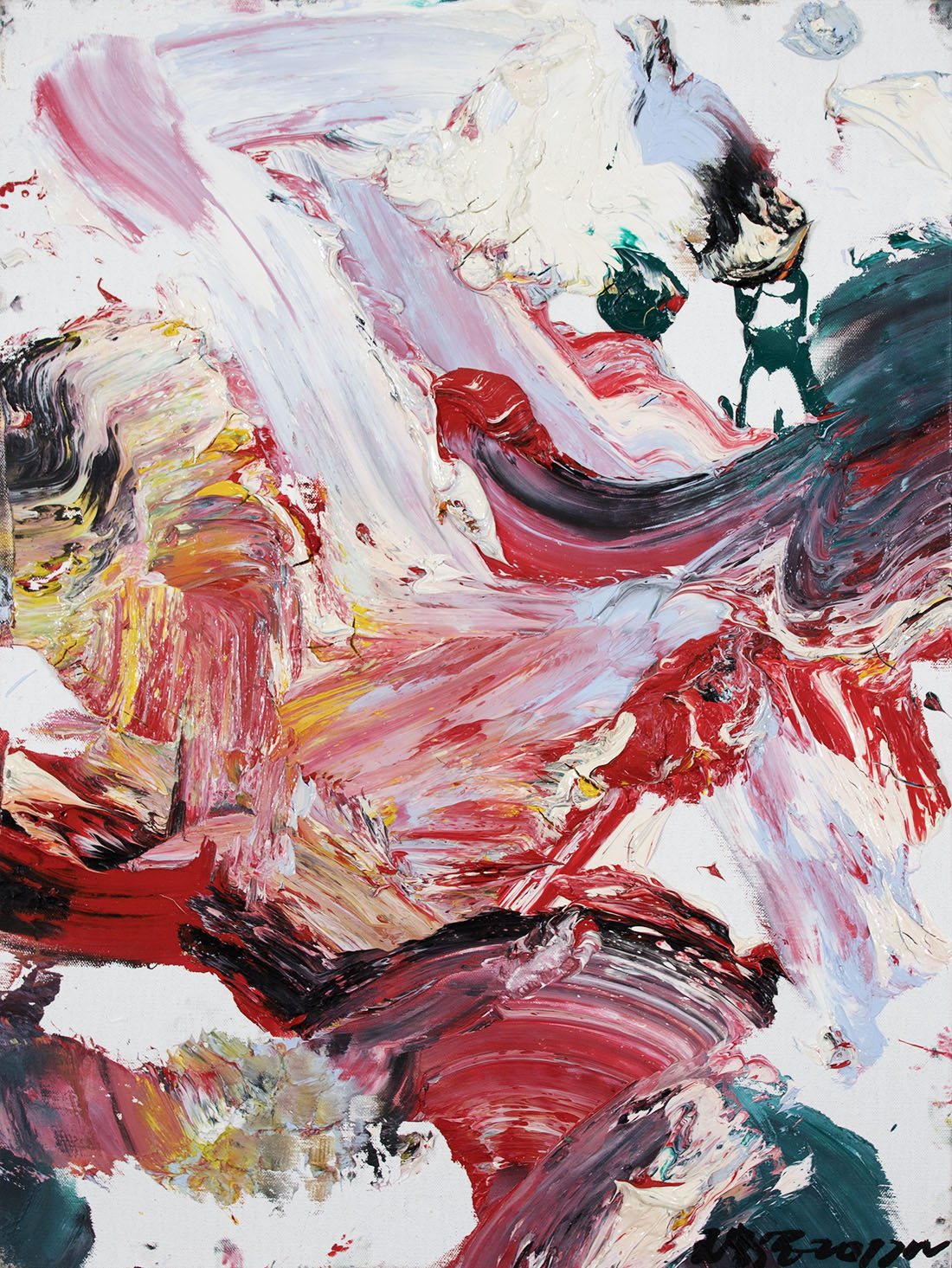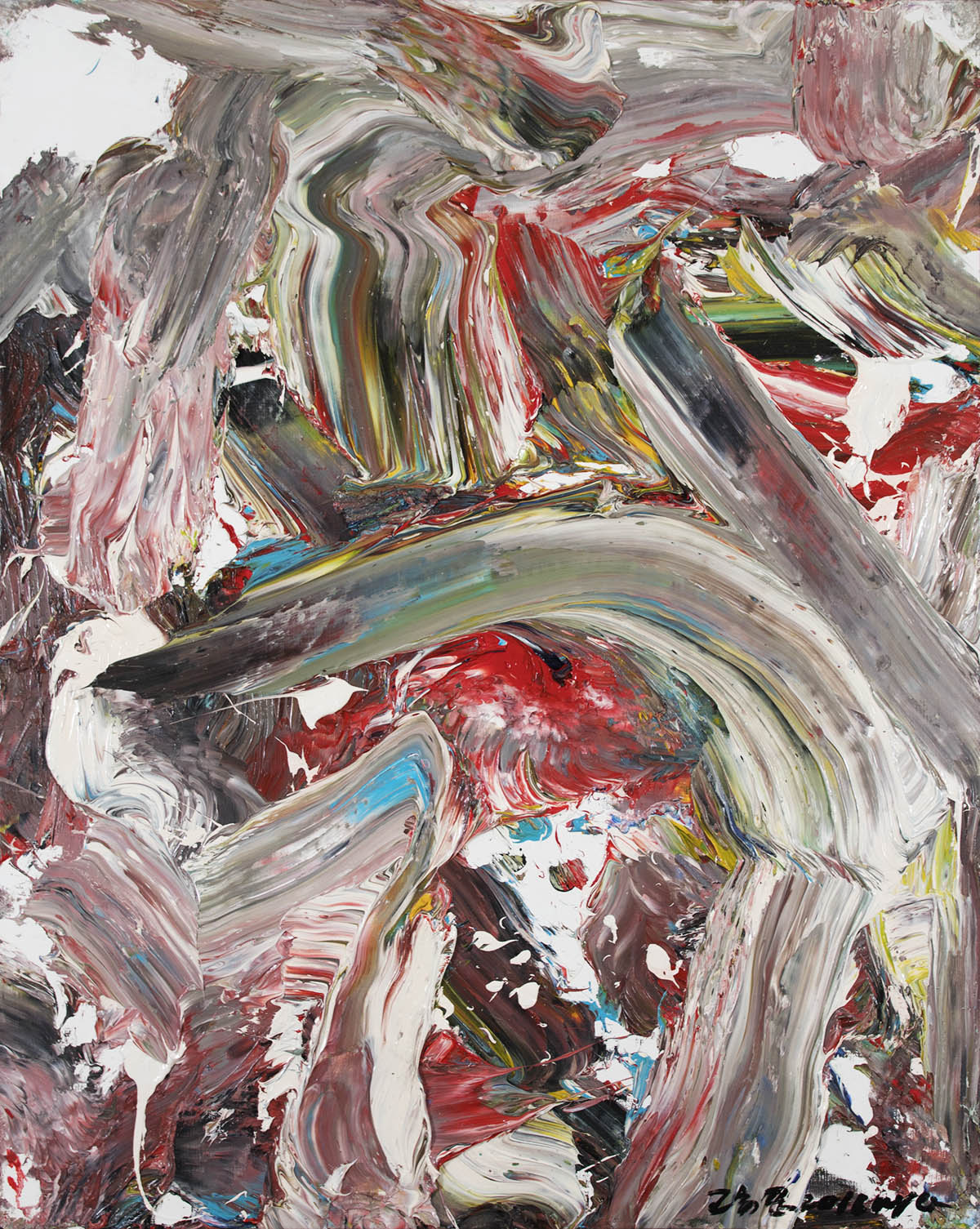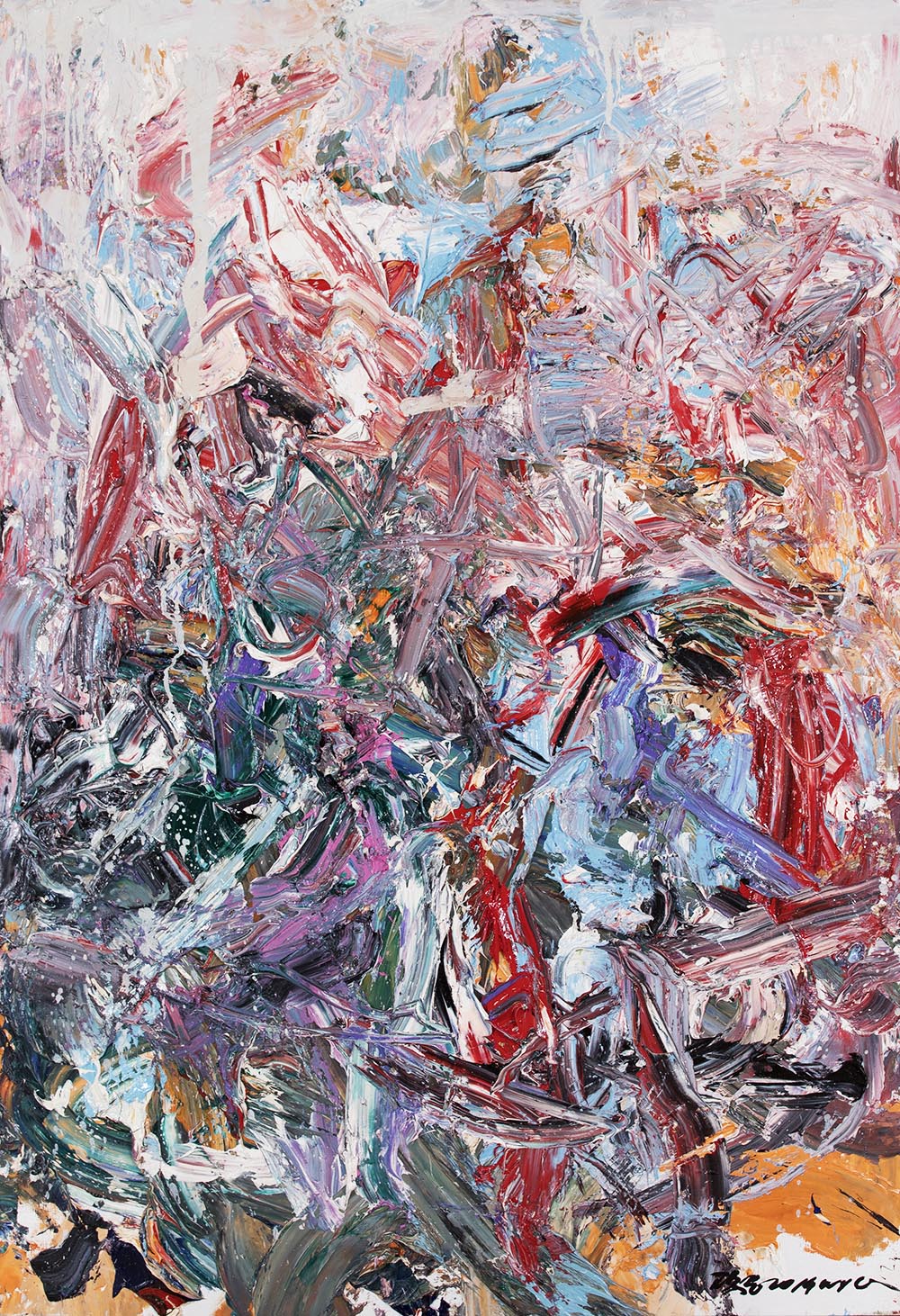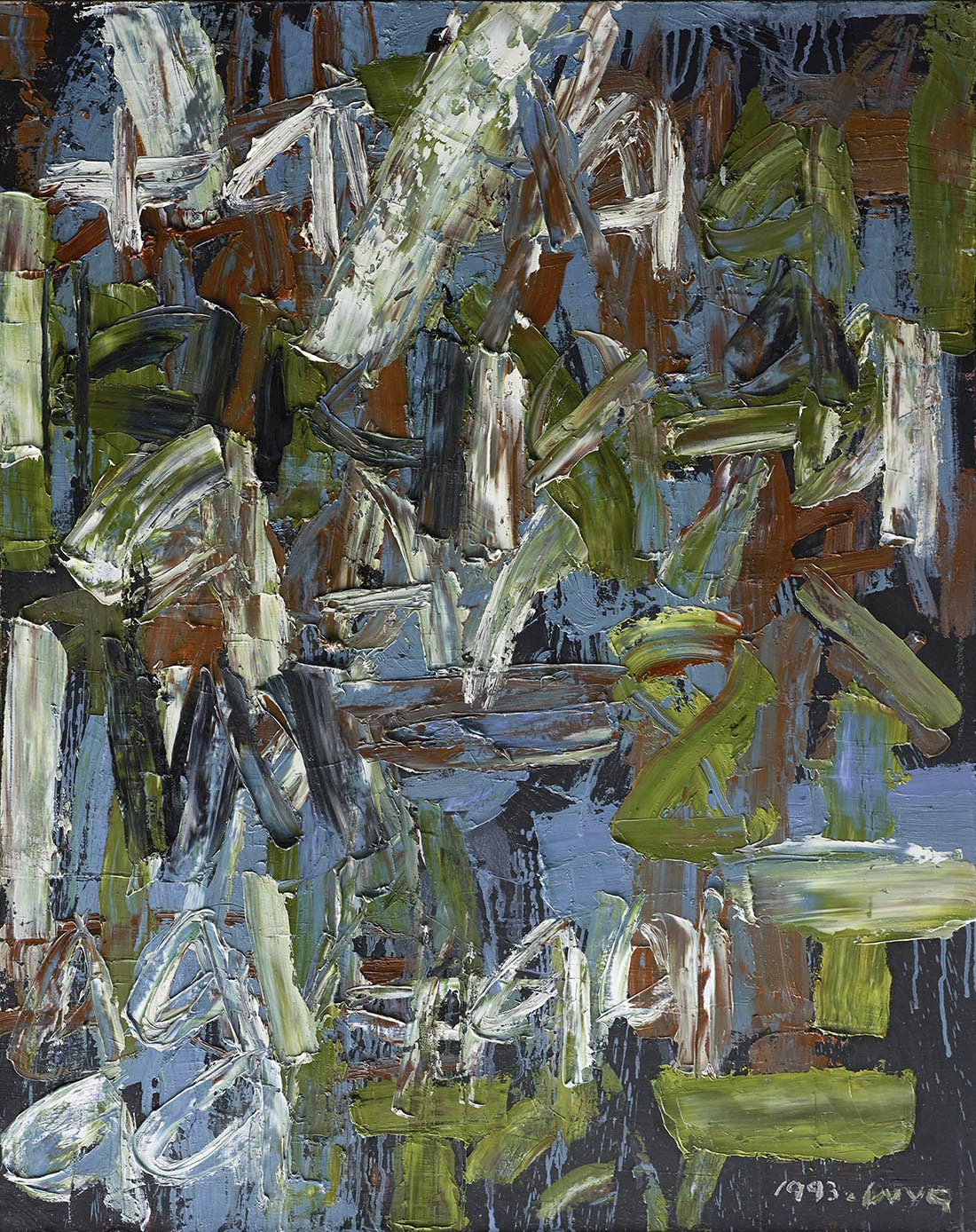Wang Yigang
May 5 – June 2, 2018
In the 1980s, as a student at Lu Xun Academy of Fine Arts, Wang Yigang began his pursue for individuality and self-expression, and adopted Western Modernism in retaliation against conservative art education. After ten years of experimentation with different styles, Wang favored German Expressionism by the early 1990s, which he studied, experimented, but ultimately rejected. By the late 1990s; however, Japanese Post-war art movements caught his attention, particularly Mono-ha and Gutai, which drew upon and expressed Eastern culture on the basis and success of Western Modernist modes. This prompted Wang to revisit Eastern culture, especially Buddhist Chan (Zen) philosophy, which redirected his struggle for individuality toward self-understanding. In this awakening, his internal struggle transformed from against the society to the self, and in self-criticism, he found an abandonment of all conventional painting practices and discovered new meaning purely in the movements of his body during the act of painting. In this way, every artwork became a record of his movements through space and time.
From experimentation, rejection, to self-awareness, Wang Yigang’s art transcends the painterly image, rejects all conventional practices, and ultimately goes Beyond Abstraction.
May 5 – June 2, 2018
Reception: Saturday, May 5, 3:00 pm
Hours: Tuesday – Saturday, 2:00 – 6:00 pm

